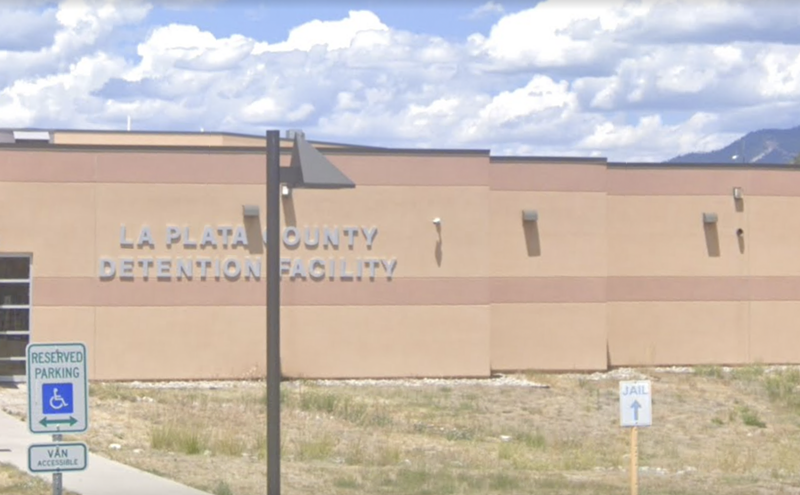But while the idea of a generous paid time-off policy for employees sounds good in theory, restaurant owners -- and former restaurant owners, like Governor John Hickenlooper -- are worried sick over the Paid Sick and Safe Leave proposal.
Hickenlooper, a founder of the Wynkoop Brewing Co. (which had grown to a family of eight restaurants before he got out of the biz), came out against Initiative 300 last week at a business luncheon. "You could not pick a worse initiative at the present time," Hickenlooper told the crowd, adding that he was only speaking as himself, not the governor. "If anything, it's going to cost jobs."
Whereas a similar-sounding proposal in Seattle that passed Monday night protects smaller businesses (and many Denver restaurants definitely qualify as that), critics say that's not the case with Denver's Initiative 300. "There are stark differences between what the Seattle Council passed and the proposal before Denver voters," says Denver City Councilman Chris Herndon in a release from a group combatting the measure. "In Denver, a business with just ten employees will be faced with the same requirements that a large company with over 250 employees in Seattle must provide. The Denver initiative simply overreaches."
This morning, members of EatDenver, a group of sixty independent restaurants, will be at the Wynkoop to meet with other local businesses and listen to political consultants explain the ramifications if the bill passes, along with strategies to make sure it doesn't. "It sounds great on the surface, but it's a very scary proposition," says Snooze's Adam Schlegel. "It's completely unmanageable."
The Colorado Restaurant Association is also heavily involved in efforts to educate voters on this bill, and is posting news about more educational seminars on its website, Coloradorestaurant.com.
You can find all the documentation on the initiative's progress through the system on the Denver Clerk and Recorder's site.
Here's the full wording of Initiative 300:
Section 1. Section 28-17 of Article II of Chapter 28 of the Revised Municipal Code of the City and County of Denver is amended by adding a new subsection (11) that provides: (11) To ensure the provision of paid sick and safe time for all employees in the City of Denver as provided in Section 28-235 et. seq. of the Revised Municipal Code of the City and County of Denver.Section 2. The Revised Municipal Code of the City and County of Denver is revised to add a new Article VIII to Chapter 28 of the Revised Municipal Code of the City and County of Denver to provide as follows:
Article VIII. Paid Sick and Safe Time Section 28-235. Definitions. For purposes of this Article: (a) "Agency" is the Agency for Human Rights and Community Relations as defined in Article II of this Chapter. (b) "City" shall mean the City and County of Denver. (c) "Domestic abuse" has the meaning set forth in Section 13-14-101(2), C.R.S. (d) "Employee" is any person as defined in Section 8-4-101(4), C.R.S. who is employed within the geographic boundaries of the City by an employer, including part-time and temporary employees. (e) "Employer" means every person, firm, partnership, association, corporation, migratory field labor contractor or crew leader, receiver, or other officer of court in Colorado, and any agent or officer thereof, of the above mentioned classes, employing any person in Colorado. For purposes of this Article, employer does not include (1) the United States government or (2) the State of Colorado including any office, department, independent agency, authority, institution, association, society or other body of the State including the legislature and judiciary. (f) "Family member" means: (i) A person related to an employee by blood, marriage or legal adoption including a child, parent, spouse, sibling, grandparent or grandchild of the employee; (ii) A foster child, parent, sibling, grandparent or grandchild of the employee, a child to whom the employee stands in loco parentis or a child for whom the employee is the legal guardian; (iii) The employee's domestic partner, as defined in Section 24-50-603, C.R.S.; (iv) The spouse of an employee's child, parent, sibling or grandparent; (v) A legal guardian of an employee, a person who stood in loco parentis to the employee when he or she was a minor, or a parent of the employee's spouse; or (vi) Any other individual related by blood or affinity whose close relationship with an employee is equivalent to a family relationship. (g) "Formation document" means articles of incorporation, articles of organization, a certificate of limited partnership, articles of association, a statement of registration, or any other document of similar import filed by an entity with the secretary of state or, where allowed by the laws of the State of Colorado, with the office of the county clerk and recorder, under which the entity is first formed or first obtains its legal status in the State of Colorado. (h) "Paid sick and safe time" means leave that is compensated at the same hourly rate and with the same benefits, including health care benefits, as the employee earns from his or her employment and is provided by an employer to an employee for the purposes described in this Article. (i) "Retaliatory personnel action" means the discharge, suspension, demotion or other adverse action taken by the employer against an employee who exercises his or her rights under this Article and also includes any sanctions against a recipient of public benefits. (j) "Sexual assault" is as defined in Section 18-3-402, C.R.S. (k)(i) "Small business" means any private individual, firm, partnership, institution, corporation, or association for which fewer than 10 persons work for compensation during a given week. In determining the number of persons performing work for compensation during a given week, all persons performing work for compensation on a full-time, part-time, or temporary basis shall be counted, including persons made available to work through the services of a temporary services or staffing agency or similar entity. In situations in which the number of persons who work for compensation per week fluctuates above and below 10 or more per week over the course of a year, business size will be determined for the current calendar year based upon the average number of persons who worked for compensation per week during the preceding calendar year. (ii) "New small business" is a business as defined in (k)(i) that is in its first year of operation. For purposes of this Article, a business begins to operate when its formation document as defined in (g) is filed with the secretary of state pursuant to part 3 of article 90 of Title 7 of the Colorado Revised Statutes, or where allowed by the laws of the State of Colorado, its formation document as defined in (g) is filed in the office of the county clerk and recorder. (l) "Stalking" is as defined in Section 18-9-111, C.R.S.
28-236. Accrual of paid sick and safe time (a) All employees who work in Denver for at least 40 hours in a year have the right to paid sick and safe time as provided in this Article. (b) All employers shall provide a minimum of one hour of paid sick and safe time for every 30 hours worked by an employee. Employers will not be required under this section to provide more than 72 hours of sick and safe time for an employee in a calendar year. (c) Employees of small businesses will not accrue more than 40 hours of paid sick and safe time in a calendar year, unless the employer selects a higher limit. (d) Employees who are exempt from requirements under Section 13(a)(1) of the Federal Fair Labor Standards Act, 29 U.S.C. § 213(a)(1), with respect to payment of overtime will be assumed to work 40 hours in each work week for purposes of paid sick and safe time accrual unless their regular work week is less than 40 hours, in which case paid sick and safe time accrues based upon that regular work week. (e) Paid sick and safe time as provided in this section shall begin to accrue at the commencement of employment except that for employees of new small businesses, accrual of paid sick and safe time shall not begin until the small business has been in operation for one year. (f) Employees shall be entitled to use accrued paid sick and safe time beginning on the 90th calendar day following commencement of their employment. After the 90th calendar day of employment, employees may use paid sick and safe time as it is accrued. (g) Employers are not required to permit employees to carry forward more than 72 hours of paid sick and safe time from one calendar year to the next. (h) Any employer with a paid leave policy, such as a paid time off policy, who makes available an amount of paid leave sufficient to meet the accrual requirements of this section that may be used for the same purposes and under the same conditions as paid sick and safe time under this section is not required to provide additional paid sick and safe time. (i) Nothing in this Article shall be construed to prevent employers from adopting or retaining leave policies that are more generous than the policies required under this section. (j) Nothing in this Article shall be construed as requiring financial or other reimbursement to an employee from an employer upon the employee's termination, resignation, retirement, or other separation from employment for accrued paid sick and safe time that has not been used. (k) When there is a separation from employment and the same employer rehires the employee within one year of separation, previously accrued paid sick and safe time that had not been used shall be reinstated. Further, the employee shall be entitled to use accrued paid sick and safe time at the commencement of employment following a separation from employment of one year or less.
28-237. Use of paid sick and safe time (a) Paid sick and safe time shall be provided to an employee by an employer for the following purposes: (1) Paid sick time shall be provided for: (A) An employee's mental or physical illness, injury, health condition or need for medical diagnosis, care, or treatment of a mental or physical illness, injury or health condition or need for a medical procedure or preventive medical care; (B) Care of a family member with a mental or physical illness, injury or health condition who needs medical diagnosis, care, or treatment of a mental or physical illness, injury or health condition or who needs a medical procedure or preventive medical care; and (C) Closure of the employee's place of business by order of a public official due to a public health emergency or an employee's need to care for a child whose school or place of care has been closed by order of a public official due to a public health emergency. (2) Paid safe time shall be provided for absence necessary due to domestic abuse, sexual assault or stalking, provided the leave is for: (A) seeking a civil protection order to prevent domestic abuse pursuant to section 13-14-102, C.R.S.; (B) obtaining medical care or mental health counseling or both for the employee or for the employee's children to address physical or psychological injuries resulting from the act of domestic abuse, stalking, or sexual assault or other crime involving domestic violence; (C) making the employee's home secure from the perpetrator of the act of domestic abuse, stalking or sexual assault or other crime involving domestic violence or seeking new housing to escape said perpetrator; and (D) seeking legal assistance to address issues arising from the act of domestic abuse, stalking or sexual assault or other crime involving domestic violence and attending and preparing for court-related proceedings arising from said act or crime. (b) An employer may not require, as a condition of an employee's taking paid sick and safe time, that the employee search for or find a replacement worker to cover the hours during which the employee is taking paid sick and safe time under this Article. (c) An employer may not impose unreasonable barriers to use of paid sick and safe time or require unreasonable documentation of illness when an employee takes paid sick and safe time provided that no documentation may be required before three consecutive days of absence. (d) An employer may not penalize an employee for use of paid sick and safe time by reducing any benefits of employment otherwise due the employee.
28-238. Exercise of rights protected; Retaliation prohibited (a) An employer or any other person shall not interfere with, restrain, or deny the exercise of, or the attempt to exercise, any right protected under this Article. (b) An employer shall not take retaliatory personnel action or discriminate against an employee because the employee has exercised rights protected under this Article. Such rights include but are not limited to the right to use paid sick and safe time pursuant to this Article; the right to file a complaint or inform any person about any employer's alleged violation of this Article; and the right to inform any person of his or her potential rights under this Article. (c) It shall be unlawful for an employer's absence control or any other policy to count paid sick and safe time taken under this Article as an absence that may lead to or result in discipline, discharge, demotion, suspension, or any other adverse action, or treat the use of paid sick and safe time as a negative factor in hiring, evaluation or promotion. (d) Protections of this Article shall apply to any person who mistakenly but in good faith alleges violations of this Article. (e) There shall be a rebuttable presumption of unlawful retaliation under this Article whenever an employer takes adverse action against a person within 90 days of when that person: (1) files a complaint with the agency or a court alleging a violation of any provision of this Article; (2) informs any person about an employer's alleged violation of this Article; (3) cooperates with the agency or other persons in the investigation or prosecution of any alleged violation of this Article; (4) opposes any policy, practice, or act that is unlawful under this Article; or (5) informs any person of his or her rights under this Article. (f) An employer may require exhaustion of leave under subsection (a)(2) of Section 28-237 of this article before allowing access to leave guaranteed under Section 24-34-402.7, C.R.S.
28-239. Notice and Posting (a) Employers shall give notice that employees are entitled to paid sick and safe time, the amount of paid sick and safe time, and the terms of its use guaranteed under this Article, that retaliation against employees who request or use paid sick and safe time is prohibited and that each employee has the right to file a complaint or bring a civil action if paid sick and safe time as required by this Article is denied by the employer or the employee is retaliated against for requesting or taking paid sick and safe time. (b) Employers may comply with this section by supplying each of their employees with a notice in English and in any language that is the first language spoken by at least 5% of the employer's workforce that contains the information required in (a). (c) Employers may comply with this section by displaying a poster in a conspicuous and accessible place in each establishment where such employees are employed which contains in English and in any language that is the first language spoken by at least 5% of the employer's workforce, all information required under (a). (d) The agency shall create and make available to employers posters that contain the information required under (a) for their use in complying with this section. (e) An employer who willfully violates the notice and posting requirements of this section shall be subject to a civil fine in an amount not to exceed $100 for each separate offense.
28-240. Employer Records Employers shall retain records documenting hours worked by employees and paid sick and safe time taken by employees, for a period of five years, and shall allow the agency access to such records, with appropriate notice and at a mutually agreeable time, to monitor compliance with the requirements of this Article. When an issue arises as to an employee's entitlement to paid sick and safe time, if the employer does not maintain or retain adequate records documenting hours worked by the employee and paid sick and safe time taken by the employee, or does not allow the agency reasonable access to such records, it shall be presumed that the employer has violated the Article, absent clear and convincing evidence otherwise.
28-241. Authority of Agency - Rules. The agency shall coordinate implementation and enforcement of this Article and shall adopt rules as necessary for such purposes.
28-242. Enforcement (a) The Agency shall have jurisdiction over the enforcement of this Article and, shall have the power to enforce all provisions of this Article in the same manner and to the same extent as provided in Article IV, Sections 28-106 et. seq. including the power to take complaints, conduct investigations, hold hearings, provide conciliation, issue orders, and impose fines for violations of this Article in the same manner and to the same extent as provided in Sections 28-106, 28-107, 28-108, 28-109, 28-110, 28-111, 28-112, 28-114 and 28-115 of the Revised Municipal Code of the City and County of Denver. (b) The charging party in any action before the Agency under this Article has the right to sue as provided in Section 28-110.5 of the Revised Municipal Code of the City and County of Denver seeking damages or equitable relief or any other appropriate relief and any party aggrieved by an agency finding or action with respect to the provisions of this Article has the right to judicial review as provided in 28-113 of the Revised Municipal Code of the City and County of Denver.
Section 28-243. Confidentiality and Nondisclosure An employer may not require disclosure of information relating to domestic abuse, sexual assault or stalking or the details of an employee's medical condition as a condition of providing paid sick and safe time under this Article. If an employer possesses health information or information pertaining to domestic violence, sexual assault or stalking about an employee or employee's family member, such information, including the employee's request for paid sick and safe time under this Article, shall be treated as completely confidential and not disclosed except to the affected employee or with the written permission of the affected employee unless disclosure is required by applicable federal, state or local law.
Section 28-244. Encouragement of more generous leave policies; no effect on more generous policies; collective bargaining agreements (a) Nothing in this Article shall be construed to discourage or prohibit an employer from the adoption or retention of a policy providing paid sick and safe time or other leave that is more generous than the one required herein. (b) Nothing in this Article shall be construed as diminishing the obligation of an employer to comply with any law, contract, collective bargaining agreement, employment benefit plan or other agreement providing more generous paid sick and safe time or other leave to an employee than required herein. (c) Nothing in this Article shall be construed as diminishing the rights of public employees regarding paid sick and safe time or other leave or use of leave under the laws of Colorado. (d) (1) All or any portion of the applicable requirements of this Article shall not apply to any employee in the building and construction industry covered by a bona fide collective bargaining agreement if such requirements are expressly waived in the collective bargaining agreement in clear and unambiguous terms. (2) All or any portion of the applicable requirements of this Article shall not apply to employees other than those in (d)(1) covered by a bona fide collective bargaining agreement if such requirements are expressly waived in the collective bargaining agreement in clear and unambiguous terms and the agreement provides for an equivalent benefit for the employees covered by the agreement.
Section 28-245. Other Legal Requirements This Article provides minimum requirements pertaining to paid sick and safe time and shall not be construed to preempt, limit, or otherwise affect the applicability of any other law, regulation, requirement, policy, or standard that provides for greater accrual or use by employees of paid sick and safe time or other leave, whether paid or unpaid, or that extends other protections to employees.
Section 28-246. Preemption Nothing in this Article shall be interpreted or applied so as to create any power or duty in conflict with Federal or state law.
Section 28-247. Severability If any provision of this Article or application thereof to any person or circumstance is judged invalid, the invalidity shall not affect other provisions or applications of the Article, which can be given effect without the invalid provision, or application, and to this end the provisions of this Article are declared severable.
Section 28-248. Effective date This Article shall take effect sixty (60) days following passage of this initiative, and the administering agency shall have ninety (90) days from the effective date to promulgate rules and take such other measures as may be necessary for the purposes of implementing and carrying out the provisions of this Article, provided, however, that no provision of this Article shall take effect for any small business until six (6) months following the effective date of this Article and provided further that in the case of employees covered by a collective bargaining agreement in effect on the effective date prescribed herein, this law shall apply on the date of the termination of such agreement.
More from our Calhoun: Wake-Up Call archive: "Santiago Calatrava bails on DIA expansion: Paging Curt Fentress!"












